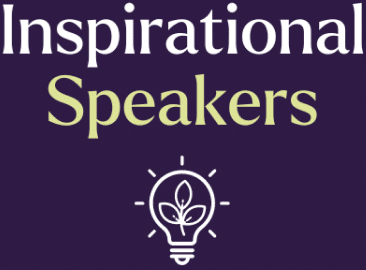Burnout: Breaking the Cycle – By Katherine Baldwin
Katherine Baldwin is a wellbeing speaker, mental health advocate, transformational coach and author who shares her personal experience of an eating disorder, addictions, burnout and breakdown.
I’m in a five-star hotel in Toyko, on a press trip with former Prime Minister Tony Blair, and I’ve just eaten my way through the minibar: crisps, chocolate, peanuts and, as a last resort, the Bounty Bar (and I hate desiccated coconut).
My stomach aching and filled with shame and self-loathing, I open my laptop and tap out a news story as fast as I can, my stress levels rising by the second as anxious questions barrel through my mind:
Will my work be good enough? What if I make a mistake? What if I get told off? What if I’m found out? What if I lose my job, my home and end up on the streets?
The self-doubt is crippling and I’m exhausted after crossing continents, but I’m a professional so I finish my story and fire it off to my news agency, Reuters, before searching for more food to take the edge off my fear.
The next morning, I put on my confident, competent reporter face and greet the rest of the Downing Street press pack, relieved that nobody knows what I ate last night or how much I hate myself.
This pattern of bingeing on food, interspersed with extreme dieting, punishing exercise, alcohol abuse and other self-harming behaviours, continued throughout my journalism career, which spanned two decades and several continents, until I couldn’t sustain the pace or the pretence anymore.
In my mid-thirties, I burnt out, broke down and was signed off sick. I swapped the corridors of power for my North London attic flat, my sharp suits for my pyjamas and I cried, a lot.
I often wonder if my story could have turned out differently – if I or others could have intervened and stopped the spiral downwards; shown me a way to balance my work with my wellbeing and manage my anxiety before it was too late.
In my case, it wasn’t to be, but the outcome can be different for you, your colleagues and your employees.
You have the opportunity to make changes now, at an individual and organisational level, to avoid the huge personal and corporate cost of burnout, breakdown and other mental health challenges (poor mental health costs UK employers £56 billion annually, according to Deloitte).
Here are four ways in which you and your organisation can break the burnout cycle and write a different story:
Normalise Mental Health Conversations
Honest conversations about our mental health can save careers and lives. I remember feeling like I was the only one who was struggling, the only one who was binge eating and blacking out after too much booze. The more alone we feel, the more we isolate.
If we can make honest conversations standard practice within organisations – from the top down, the bottom up and through the middle – we can break the stigma that’s associated with anxiety, depression, stress, addictions and other mental health challenges.
This will require making space and making time – creating a physical space in the office, perhaps, or a lunchtime walk and talk, where people are encouraged to have honest interactions, as well as making time in our diaries, in meetings and in performance appraisals for people to express how they feel and for solutions to be found for overwhelm and anxiety.
These solutions may require individual support with boundaries, delegation, decision-making, procrastination and imposter syndrome and/or organisational changes to lessen the workload and reduce pressure on people.
Create Psychological Safety
Of course, the above will only work if people feel psychologically safe to be real. That’s why it’s vital for leaders and managers to embrace their own vulnerability and to set an example for others. We need to address the fear that we’ll lose our jobs or that we’ll be seen as weak if we admit we’re not coping and understand that vulnerability is courage, to quote Brené Brown.
Naturally, taking care of people’s wellbeing will require resources but the cost of prevention is less than the cost of the cure. Imagine trying to fill successive gaps in the workforce as employee after employee goes off sick. Imagine the strain on other colleagues and the squeeze on resources. Perhaps you don’t have to imagine it – maybe you’re experiencing it.
Encourage & Demonstrate Healthy Boundaries
Healthy boundaries need to begin at the top. Working hours will vary depending on the industry but if we’re in leadership or management, we first need to check our own boundaries. Do we always work late and how is this affecting our health and relationships? And what expectations do we have of others? Do we fire off emails out of hours and expect them to be answered?
I worked in a 24/7 news agency, and the news doesn’t sleep. I barely slept either because of my poor boundaries and, perhaps, because of unspoken demands. I repeatedly neglected to take all my time off in lieu following overseas trips and if I worked late, I still felt like I should show up early, even if I had permission to rest. After all, nobody else was taking time out.
Encourage Self-Care & Self-Awareness
It’s important to remind ourselves and others frequently of the elements that contribute to good mental health. We get wrapped up in deadlines or in pleasing others and we forget to exercise, spend time in Nature, meditate, dance, draw, write out our feelings, prioritise human connection and fulfilling relationships, expand our minds through hobbies and learning and even to breathe (slowing our breathing sends a signal to our nervous system that we are safe). We deserve to build these healthy habits into our days and to support others to do the same.
Our goal is to thrive, not just survive, and for our organisations to flourish too. These steps will help to bring mental health challenges out of the dark and into the light so that we can co-create solutions before people burn out.
Following a 20-year personal development and healing journey, Katherine Baldwin has found purpose in her pain and uses her experiences to support individuals to spot the signs of addictions and other self-harming behaviours, to manage stress, anxiety and difficult emotions in healthy ways and to avoid burnout. Through her talks, she educates and supports organisations to prioritise the mental health and wellbeing of their employees, so that they and the organisation can flourish and thrive, not just survive.
Showreel

Contact us
Call us on 020 7993 2724 or click below to enquire and will will be back to you as soon as possible.
Past Blog Posts







